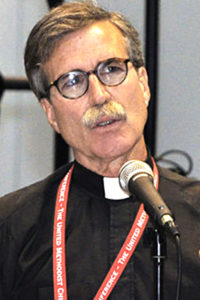Control?
Today, the desire to control—in both public and private spheres—seems to be intensifying.
Consider the pandemic. When it began, the public-health establishment told us the goal was to “stop the spread,” suggesting that officials believed they could control the virus by altering public behavior. Really? Covid was going to spread no matter what measures were undertaken to prevent it. Some of those measures might have slowed the spread. But that is all.
Consider foreign policy. Some officials thought that if the United States sanctioned Putin’s Russia, Putin’s military would not invade Ukraine. Those officials believed that economic sanctions could be used to control the military aggressions of a rogue nation. Small chance.
Consider the state of religion in Germany and Russia. German Roman Catholic bishops apparently want their church to resemble liberal-Protestant denominations in the United States. Russian Orthodox leaders apparently want to be puppets of Putin. But attempts to align their churches with secular dogma and power have ignited true and beautiful witnesses from traditional Catholic and Orthodox leaders in both countries. Those who would control their churches are clearly not in control.
In the personal sphere, consider birth control. Natural and artificial means of birth control are practiced, of course, to regulate (a nice word for control) conception. It would be interesting to know how many people in your extended family were conceived in spite of attempts to thwart it—birth control is much less controlling than is advertised.
Consider abortion. It is shocking that many use it as just another means of birth control. But in an abortion, conception isn’t being prevented; the life of an unborn child is being ended. This, so her parents may continue to go about their lives as they please. So that they can maintain control.
The urge to control has been around since Adam and Eve sought to be gods. Human control over nature came with the rise of science centuries ago. In our time, which venerates both science and the sovereign self (Richard John Neuhaus’s phrase to describe the autonomous individual), the urge to control has become the default position of most people, and of most institutions.
What is the alternative to our knee-jerk urge to control?
Providence. The notion—the reality!—of a loving God, revealed most fully in Jesus Christ by the power of the Holy Spirit, mysteriously providing for this world, and for each one of us, in ways that sometimes make sense and sometimes don’t. Such providence does not cancel human responsibility for doing what should be done, but providence humbles human responsibility.
Because of God’s providence, because of God’s provision, before attempting any task or project (small or large), our first act might be to pause and “Be still, and know that I am God! I am exalted among the nations, I am exalted in the earth.” (Psalm 46:10, NRSV)
In cultivating a sense of God’s providence, we learn how to let go of our urge—our lust—to control.










